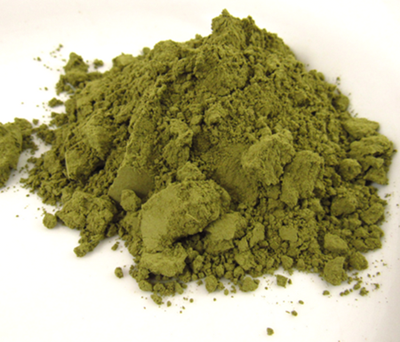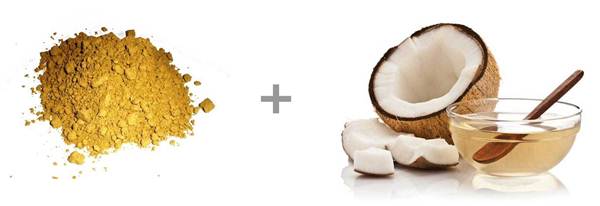As henna has gained popularity worldwide, experts and enthusiasts alike have experimented with various additives to improve its effects. One such additive is coconut oil, which is believed to offer additional benefits and make henna darker. In this article, we explore the relationship between henna and coconut oil, examining whether coconut oil enhances henna’s color and delving into its potential advantages.
The Science Behind Henna’s Color

Before diving into the role of coconut oil, it is important to understand how henna works as a dye. Henna contains pigments called lawsone molecules, which have an affinity for bonding with proteins found in the hair and skin. When henna paste is applied to the hair or skin, the lawsone molecules penetrate the upper layer of the skin or the keratin layer of the hair shaft, staining it with a reddish-brown color. The darkness and intensity of the color are influenced by various factors, including the quality of the henna powder, the duration of the henna application, and the natural color of the hair or skin.
Does Coconut Oil Make Henna Darker?
No, coconut oil doesn’t make henna darker. It’s usually used to moisturize the hair and skin, but it doesn’t significantly affect the color outcome of henna dye.
The Potential Impact of Coconut Oil on Henna’s Color

- Moisturizing Effect: Coconut oil is quite well-known for its moisturizing properties. When mixed with henna, coconut oil can help prevent the hair from becoming too dry during the dyeing process. Dry hair tends to absorb more henna, causing to a darker color. The extra moisture provided by coconut oil may contribute tomore vibrant and a richer henna stain.
- Penetration Enhancer: One of the first reasons why coconut oil is believed to make henna darker is its natural penetration-enhancing properties. Coconut oil contains medium-chain fatty acids. These acids can penetrate the skin and hair shaft more effectively than other oils. When mixed with henna, it may aid in the deeper penetration of lawsone molecules into the hair, resulting in a more intense color. This can be especially useful for people with resistant or thick hair types.
- Color Locking Effect: After applying henna, some people cover their henna tattoos with an adhesive bandage or wrap their hair in plastic to trap body heat, which aids in intensifying the color. Coconut oil, with its occlusive properties and thick consistency, can serve a similar purpose by creating a protective barrier, thus trapping the heat produced by the body. This may potentially enhance the produce a darker henna stain and dyeing process.
- Increased Dye Release: The henna dyeing process involves the release of lawsone molecules from the natural henna powder. This process, also known as dye release, occurs when henna is mixed with a slightly acidic liquid, such as tea or lemon juice. Some henna lover claim that adding coconut oil to the henna paste can accelerate dye release, causing to a more potent color upon application.
The Process of Using Coconut Oil with Henna
To make the most of coconut oil’s benefits with henna, follow these steps:
- Choosing High-Quality Henna: Start with high-quality, fresh henna powder. Look for reputable suppliers to ensure the henna product is free of chemicals or additives that might compromise the end results.
- Creating the Henna Paste: Mix the henna with a slightly acidic liquid, such as tea or lemon juice, to promote dye release. Allow the henna paste to rest for a couple of hours or overnight to let the lawsone molecules release fully.
- Adding Coconut Oil: When the henna paste has achieved the desired dye release, add one or two tablespoon of coconut oil to the mixture. Mix it thoroughly until you obtain a consistent, smooth paste.
- Testing and Application: Before applying henna to your skin or hair, perform a patch test to check for any adverse reactions. If all is well, apply the henna paste, ensuring thorough coverage.
- Waiting and Removal: Allow the henna paste to sit on the skin or hair for several hours or as recommended in the instructions. Afterward, remove the dried henna paste to reveal the freshly stained skin or hair.
Conclusion
While traditional practices and anecdotal evidence suggest that coconut oil can make henna darker and improve its benefits, scientific studies supporting these claims are limited. As with any beauty treatment, results can vary based on individual factors such as quality of henna used, skin type, and hair type. If you decide to try henna with coconut oil, do a patch test first and closely monitor the effects. Always choose quality henna and use coconut oil sparingly to avoid any undesired outcomes. Remember that henna is a quite safe, natural option for hair and skin dyeing, and coconut oil can potentially add an extra moisturization and benefits to the overall process.


